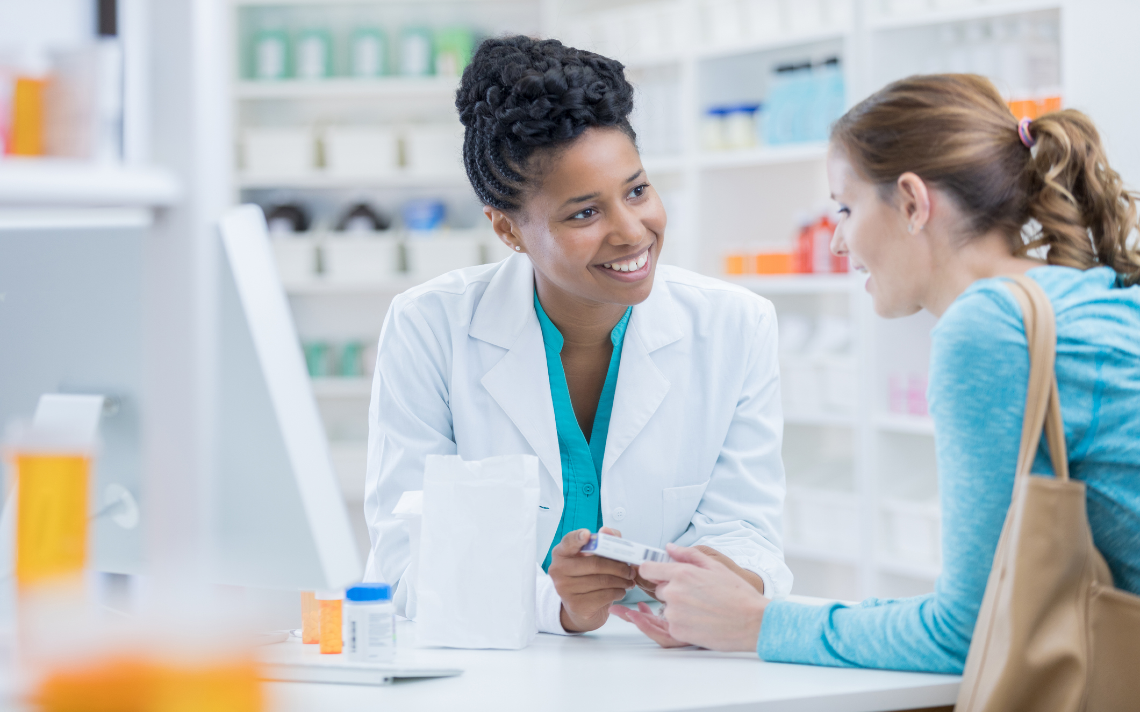Even before the COVID-19 pandemic, if you’d asked people to list what they define as ‘critical’ healthcare workers, pharmacists most likely wouldn’t have made the cut despite being the third-largest group of healthcare professionals worldwide.
This failure to acknowledge the significance of pharmacists' role may be partially because the majority of pharmacists work in retail settings – settings that ironically facilitate the ease of access to free healthcare advice in communities. Additionally, pharmacists in hospital settings are involved in fewer direct patient interactions compared to doctors and nurses, meaning their ‘behind the scenes’ contributions often go unnoticed.
This frequent oversight can perpetuate the notion that pharmacists are ‘lesser qualified’ than other HCPs.
As a result of the COVID-19 pandemic, pharmacists, like all other NHS workers, are experiencing unprecedented levels of stress and pressure. Despite their unmistakeably valuable contributions to the greater good of public health, pharmacists frequently report being verbally abused, spat on, coughed on, and screamed at by patients… yikes. Studies conducted before the pandemic cite as many as 90% of pharmacists feeling at risk of ‘burning out’, so it's clear that we owe our pharmacists a much bigger dose of kindness.
As someone who holds a degree in Pharmacy, I know that one of the first things pharmacists desperately want people to know is that they don’t just dish out paracetamol. To register as a pharmacist, you must first study to obtain a master’s degree at university, which involves learning subjects including but not limited to pharmacology, physiology, drug development, and quality control processes and legalities, in addition to being presented with real-life examples of ethical and moral dilemmas.
Following completion of their degree, pharmacists must train for a year in a clinical setting before passing an exam that tests their knowledge, their degree and real-world learnings. This means that pharmacists understand the way that your body and medicines work, independently and together, down to the smallest of details.
With such extensive training, pharmacists are equipped with an abundance of clinical knowledge that allows them to fulfil a plethora of responsibilities, including playing an imperative role in improving medicine safety. A pharmacist’s check ensures that the medicines you receive are of the correct quantity, strength and do not interact with any other medicines you are taking. This means that these NHS heroes act as middlemen, questioners, and flag raisers in both hospital and community settings.
In communities, pharmacists offer easily accessible, free advice – something to be treasured when NHS helplines are bursting at the seams. Additionally, many pharmacies support nationwide vaccination efforts, often at walk-in convenience. In hospital settings, pharmacists work tirelessly to ensure those who need it receive the correct medication, at the right dose and frequency, in the absence of drug-to-drug interactions.
Long story short, it’s cool to be kind, especially to the people who are supplying you with medicine that ultimately makes you feel better. It’s also important to remember that for us to have such readily available, primarily-free access to care is a true blessing when you compare the NHS to other countries’ healthcare infrastructures.
We thank you, pharmacists, and all other NHS workers, for your ceaseless professionalism, diligence, hard work and bravery.
